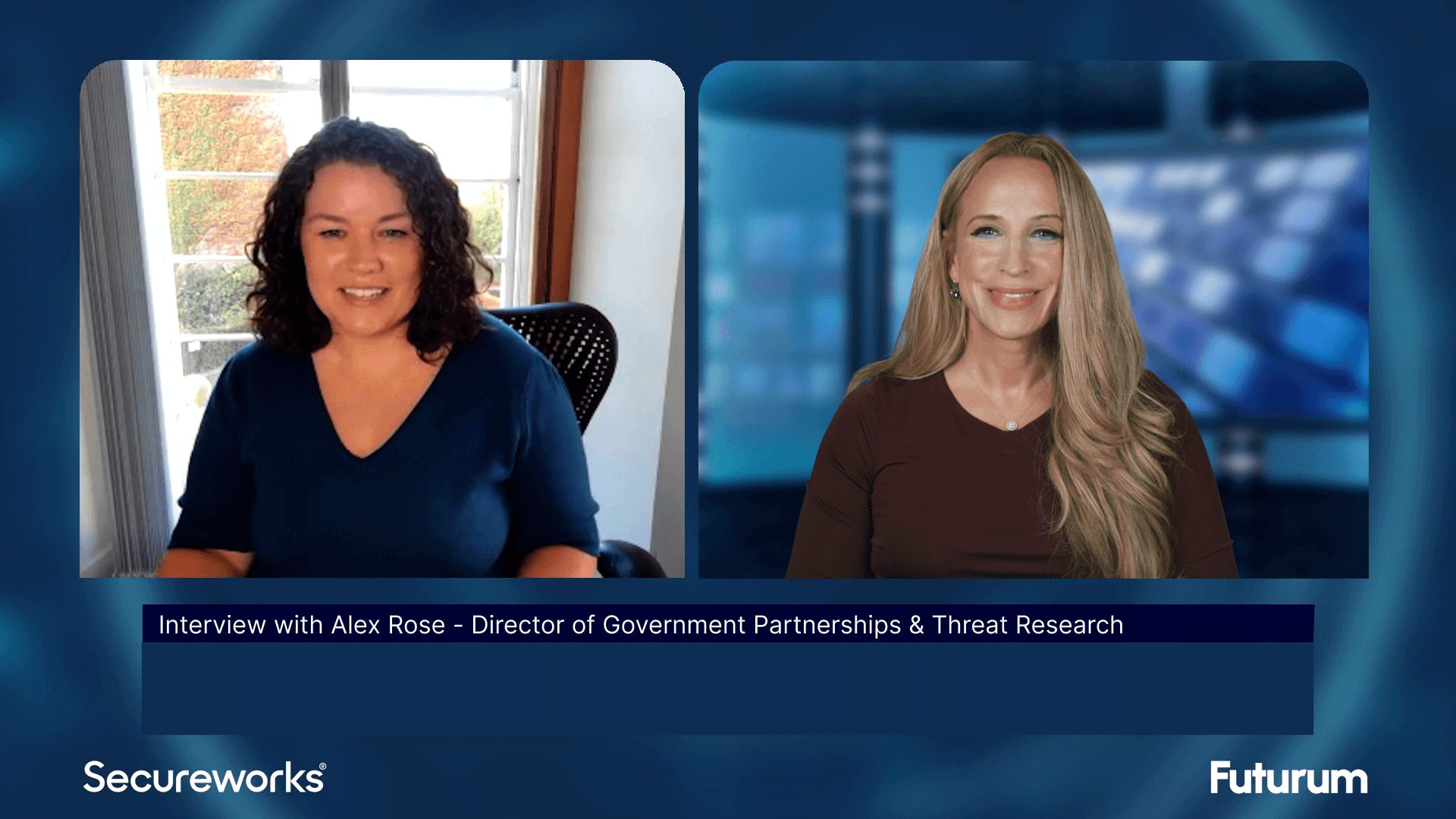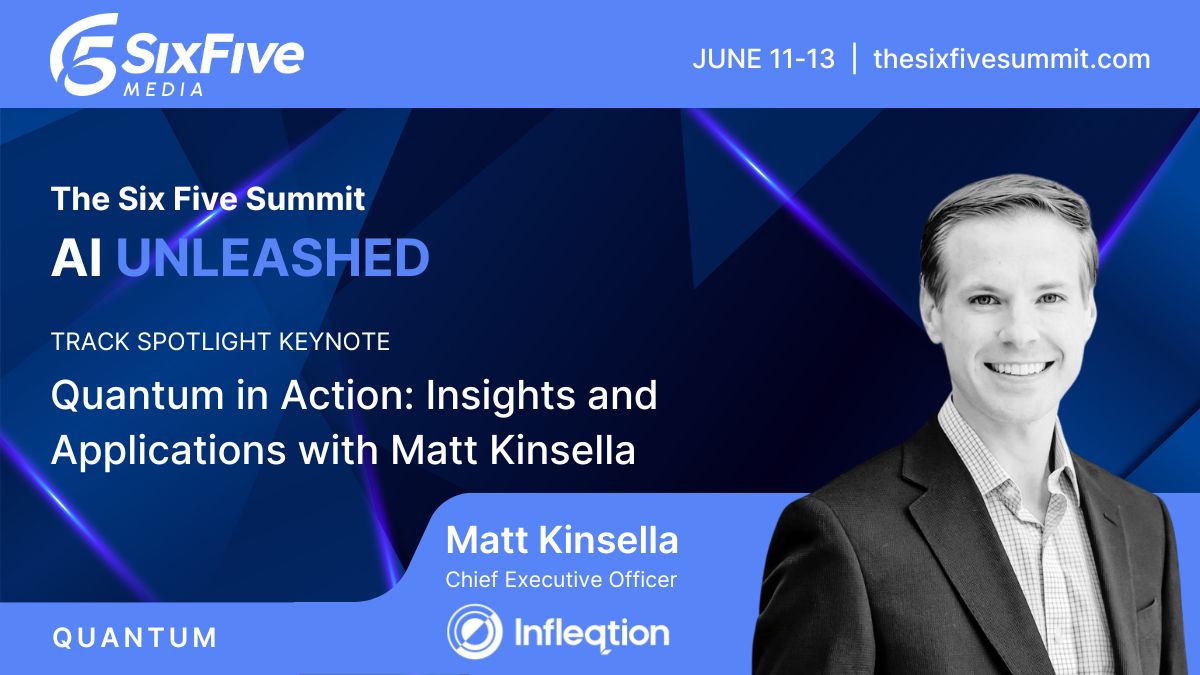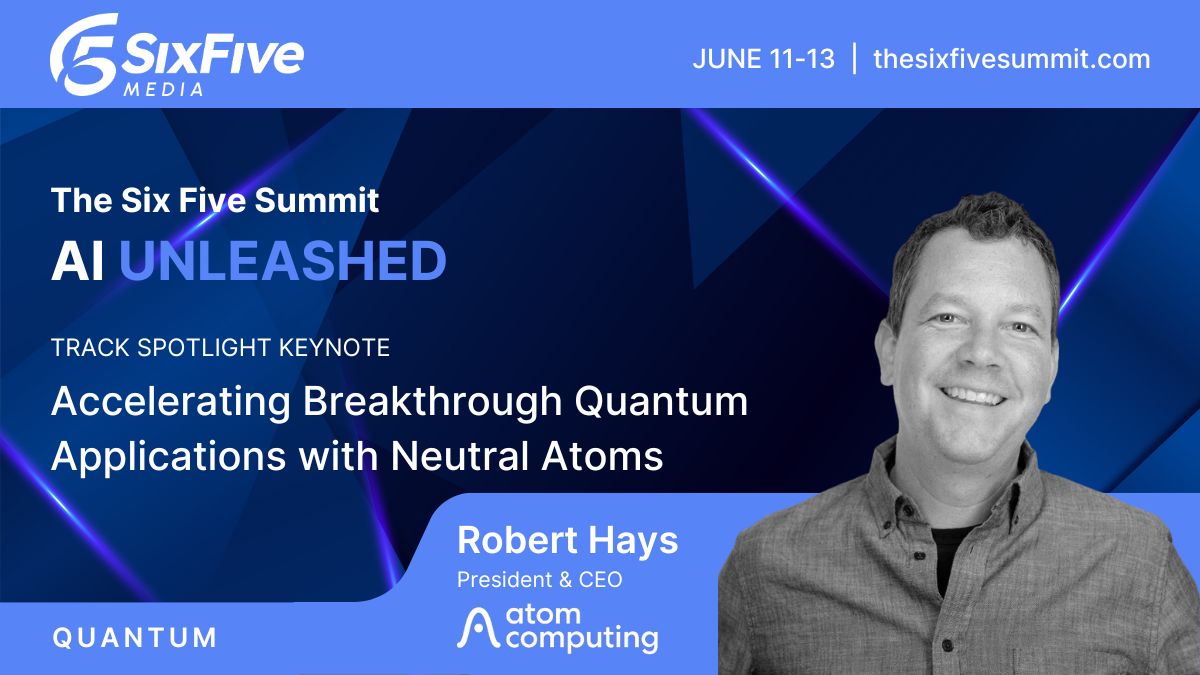Mainframe Modernization Patterns & Strategies for Efficiency in Application Development
Anthony Anter and Mark Schettenhelm from BMC Software join Mitchell Ashley to share insights on optimizing mainframe application development for enhanced efficiency.
New devs, agile tools, AI magic. The mainframe is evolving. Host Mitch Ashley, is joined by BMC Software‘s Anthony Anter, DevOps Evangelist, and Mark Schettenhelm, DevOps Evangelist & Lead Product Manager, for a conversation on modernizing mainframe application development. Tune in for their actionable insights into patterns and strategies that drive efficient application development and DevOps!
Key takeaways include:
🔹Mainframe remains a modern platform, supporting Java, Python, and APIs: Modern mainframes integrate with current languages, enabling developers to use familiar tools. This allows for robust and scalable applications.
🔹It’s about architectural modernization, not just language: True modernization requires architectural shifts, not just code updates. Microservices and APIs enhance flexibility and agility.
🔹How AI-driven code assistance can propel mainframe dev forward: Think automated documentation, API enablement, and modularization for a more scalable and efficient architectural framework. Learn more at BMC Software. Watch the video above, and be sure to subscribe to our YouTube channel, so you never miss an episode.
Mitch Ashley:
Hi, welcome to Six Five On The Road. Mitch Ashley here. We’re at the Old Hickory Restaurant here at the Gaylord in Washington, D.C. talking about technology with some great friends from BMC, Anthony Antor and Mark Shettenhelm. Welcome, guys. So let’s talk about two of my favorite topics, application modernization and DevOps. We talk about modernization, we’re often talking about the application itself, but we have to also worry about how we develop software and how we modernize that. Talk a little bit, Mark, about sort of the patterns of what we need to consider as we modernize our development.
Mark Schettenhelm:
Right. I think when we talk about that, sometimes people think, oh, just move, move it off. What we’re looking at is understanding the application first, what you have, and then really understanding the architecture to make sure that you change the architecture to something that makes it more open and ready to be transformed, or things like APIs that will enable DevOps. Yeah.
Anthony Anter:
And I think just to add to what Mark said, I think a lot of people have this idea that you can’t do this on the mainframe platform, that it just can’t be done. And the reality of it is the mainframe is just another platform. I would dare you to go into a data center, and unless they have those cool IBM doors on the front of it, you’re not gonna be able to tell your mainframe from your cloud blades. Right. So all of the capabilities of modern application development are available on the platform. You just have to divorce yourself from this idea that the platform is different because it really isn’t.
Mitch Ashley:
Well, there’s not the COBOL of 20 years ago. We’re talking about APIs. We’re talking about Java, might be a part of it?
Anthony Anter:
Yeah, Java, Python.
Mark Schettenhelm:
They all work together.
Anthony Anter:
That’s exactly right. I mean, there’s nothing you can’t do on a mainframe, but let’s say you do have COBOL. You’re probably keeping your COBOL up to date just to stay up to date with the latest and greatest. COBOL has the capabilities to do all that. You don’t have to completely break your applications down to the…what do they say in construction? Break it down to the foundations to rebuild it. You don’t have to do that. It’s still a good language and it still works. And there’s no reason to.
Mark Schettenhelm:
There’s nothing wrong with the language itself. It’s been modernized. It’s sometimes the architecture of what they’ve done. So you have larger programs and like you’re saying, don’t break them all the way down, but pull out those nuggets that you need in there.
Anthony Anter:
I can write a horrible app in Java or Python, I probably have to be honest with you, Mitch, but I can write a horrible app in any of these modern languages, and it’ll be just as bad as a monolithic COBOL application. It’s about what you’re doing with your app. It’s not about the language you’re using.
Mark Schettenhelm:
Right. It’s not COBOL, it’s what we’ve done to it.
Anthony Anter:
That’s exactly right.
Mitch Ashley:
Interesting. So talk a little bit about, like, source code management and the tools that we have to modernize or have modernized that we can use as part of that development. Love to hear your thoughts on that.
Mark Schettenhelm:
Right. A lot of people are moving to Git because it’s been so popular with distributed, and they’re moving it over to COBOL. And that way you can have people have all your source in one area and you get to use all the tools that are available for Git for your COBOL applications or PL1 or Assembla.
Anthony Anter:
Yeah. And I mean, you’re seeing more applications become what I like to call hybrid apps. I don’t know if I coined that term or not, but that’s what I call them. And they have elements of the distributed code base. They have elements on the mainframe. There are API layers in between all that stuff. Right. So they want to consolidate an application onto a single platform. And to Mark’s point, that’s Git. It has what, 75, 78% of the market right now on the distributed side is Git or some flavor of Git, and it only makes sense that mainframe source code would move that direction. But I think to break it down one more, without talking about a specific tool, what is needed is agility. No longer is it the days of, I have a module and I’m the only one who can make a change on that module until I’m done with it. And then I check it in and then it has to be deployed and then the next guy can get it like this serial, this serialization of work that happened on the mainframe. Now people want to be able to, you should be able to check out that module, I should be able to check out that module. Mark should be able to check out that module, and we all work independently and bring it together. Right. It’s that agility and that agile mindset is really where the platform needs to go.
Mark Schettenhelm:
Right. And so it’s not like, oh, I’ll just put it in Git and then everything’s fine.
Anthony Anter:
Right.
Mark Schettenhelm:
Git is an enabler for collaboration and openness. So it’s a mind change you have to do for modernization and all these things. It’s changing your mind and realizing it isn’t just old mainframe COBOL. And once you have that in place, things like Git, then enable it.
Anthony Anter:
Right. It’s like the idea, if I’m just going to stay in the same mindset that I have today and then I move all my source code to Git, I don’t make the benefits of Git work for me. It’s like buying a really cool car and then I hook a horse to the front of it to get from point A to point B. Right. It just doesn’t make sense. So to the point, I think where Mark’s going with that it really starts with culture. You have to get that agile culture and that agile mindset in place, then worry about what tools you bring to the table.
Mitch Ashley:
The tool really gives you a new way of working. It’s not just a different technology.
Mark Schettenhelm:
Right, right, right. And what’s great about it is those new to the mainframe are familiar with all those. And it really re- energized the mainframe space.
Anthony Anter:
Yeah, I mean, you got. So you have the, you know, the great resignation or whatever people are calling it. There’s. I’ve seen about 100 names. Some I want to say on this podcast, some I don’t. But there’s this new generation coming in. And the point that Mark, I think the point Mark is making very eloquently is they already understand all this. They already know how to work this way. They already understand these tools. And quite frankly, they don’t want to take a step backwards. They don’t want to go to a green screen with whatever, no knock on the green screen. But the reality of it is they’ve been trained in different ways to do things. And as they come onto the platform and they’re needed to come onto the platform to close the gap, they want those, those new tools, those new capabilities that they’re used to.
Mark Schettenhelm:
And this is what’s going to save the mainframe and the mainframe applications, because they are the ones, they’re going to use all those skills they’ve honed and distributed, use them for the mainframe and open things up. It’s exciting.
Mitch Ashley:
AI. We can’t help ourselves without bringing up.
Anthony Anter:
I would, I would almost be, I would almost wonder what we’re doing here.
Mitch Ashley:
If we’re not talking about AI, how that’s enabling, whether it’s API modernization, documentation, code now, I mean, so many things that AI is already helping us with.
Mark Schettenhelm:
To me, it’s one of the fastest adoptions of anything I’ve seen. Like, originally it was DevOps, now it’s this. And it’s moving so fast. It’s so exciting. I mean, one use case is the explain functionality to explain code I’ve had for a long time, decades, people saying, I want to know what it does. And I could do charting and flows. I couldn’t tell them what it was, what it could do. AI can do that and quite well. So it’s, it’s taking AI and not replacing everything, but looking for those niches of things that we’ve never been able to do before and then using AI for that.
Anthony Anter:
Yeah, I mean, the analogy I use to that is like, if you remember back in the days, you know, being a bigger guy, keto, right? Keto comes out and then pretty soon every food on the market is keto. You got like a keto chocolate cake or something like that. It is just ridiculous. I think AI is going through some of that initial growth today. AI this, AI that, AI the other. You know, AI coding, AI operations, AI. The reality of it is AI has been out for about five minutes. We don’t know where it’s going to apply or not. Now, I completely agree that I think it’s going to change the landscape and I think it’s going to be amazing. But there’s going to be a lot of stuff that gets pushed out with AI and a lot of it’s going to fall off. But the cool thing about that is what’s left is going to be amazing.
Mitch Ashley:
We find those valuable use cases where it is helping us get more productive.
Anthony Anter:
Yeah, exactly. And I mean, the analogy that we used one time when we were talking about this or we were presenting was think about somebody back in the day building a house, right? Or the analogy we actually use was the pyramids and used to have hundreds or thousands of people and they would have giant blocks and they would basically, you know, use logs to roll these blocks up ramps to put them in place. And today you have forklifts and cranes. Now how many people want to go back to the old days of logs and blocks?
Mitch Ashley:
Fortunately, we don’t need to. Well, it’s been fun talking with you gentlemen. Appreciate it very much. And we’ll have to do this again sometime. There’s so many more things we could explore. Thank you for joining us for this Six Five On The Road session. We’d love to have you subscribe. Also, check us out on social media. And of course you can go SixFiveMedia.com and check out our videos with folks from BMC and so many other great companies. We appreciate you joining us today. Take care.
Other Categories
CYBERSECURITY

Threat Intelligence: Insights on Cybersecurity from Secureworks
Alex Rose from Secureworks joins Shira Rubinoff on the Cybersphere to share his insights on the critical role of threat intelligence in modern cybersecurity efforts, underscoring the importance of proactive, intelligence-driven defense mechanisms.
quantum

Quantum in Action: Insights and Applications with Matt Kinsella
Quantum is no longer a technology of the future; the quantum opportunity is here now. During this keynote conversation, Infleqtion CEO, Matt Kinsella will explore the latest quantum developments and how organizations can best leverage quantum to their advantage.

Accelerating Breakthrough Quantum Applications with Neutral Atoms
Our planet needs major breakthroughs for a more sustainable future and quantum computing promises to provide a path to new solutions in a variety of industry segments. This talk will explore what it takes for quantum computers to be able to solve these significant computational challenges, and will show that the timeline to addressing valuable applications may be sooner than previously thought.







